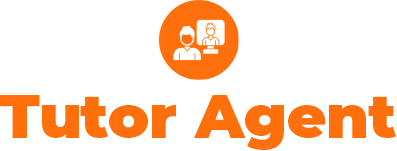Have you ever wondered how to take control of your learning journey? Self-directed learning, also known as independent learning or autonomous learning, empowers individuals to guide their own educational experiences. In this guide, we’ll explore effective strategies for promoting self-directed learning and achieving your learning goals.
Understanding Self-Directed Learning
Self-directed learning is the process of taking initiative and responsibility for one’s learning. It involves setting goals, identifying resources, and actively engaging in the learning process without the direct guidance of a teacher or instructor. By taking ownership of their learning, individuals can tailor their educational experiences to suit their unique interests, preferences, and learning styles.

Cultivating Curiosity and Motivation
One of the key components of self-directed learning is cultivating curiosity and motivation. Embrace your natural curiosity and thirst for knowledge by exploring topics that pique your interest. Identify what motivates you to learn, whether it’s personal growth, career advancement, or simply a desire to expand your horizons. By tapping into your intrinsic motivation, you can fuel your commitment to self-directed learning.
Setting Clear Learning Objectives
To effectively navigate the self-directed learning process, it’s essential to set clear learning objectives. Define what you want to achieve through your learning endeavours, whether it’s mastering a new skill, gaining in-depth knowledge of a subject, or achieving a specific academic or professional goal. Therefore, setting clear objectives provides direction and purpose to your learning journey.
Leveraging Available Resources
In the age of information, there are countless resources available to support self-directed learning. Take advantage of a wide range of resources, including books, online courses, tutorials, podcasts, videos, and educational websites. Seek out reputable sources that align with your learning objectives and preferences. By leveraging available resources, you can access a wealth of information and expertise to enhance your learning experience.
Developing Critical Thinking Skills
Moreover, self-directed learning fosters the development of critical thinking skills. Take a proactive approach to analyzing and evaluating information, asking questions, and challenging assumptions. Engage in reflective thinking to deepen your understanding of complex concepts and draw connections between different ideas. Developing critical thinking skills enhances your ability to think independently and make informed decisions.
Embracing Lifelong Learning
Furthermore, incorporating self-directed learning into your life extends beyond formal educational settings. It involves embarking on a lifelong journey of continuous growth and development. Embrace the mindset of lifelong learning by remaining open to new ideas, experiences, and opportunities for learning. Stay curious, adaptable, and proactive in seeking out new knowledge and skills throughout your life. By embracing lifelong learning, you can enrich your personal and professional life.
Fostering Self-Discipline and Accountability
Learning requires a strong sense of self-discipline and accountability. Take ownership of your learning by establishing a routine, setting aside dedicated time for studying, and adhering to your schedule. Hold yourself accountable for your progress by setting milestones, tracking your achievements, and adjusting your approach as needed. By fostering self-discipline and accountability, you can maintain momentum and progress toward your learning goals.
Seeking Feedback and Reflection
As you engage in learning, seek feedback from peers, mentors, or subject matter experts to gain insights and perspectives on your progress. Reflect on your learning experiences, challenges, and successes to identify areas for improvement and growth. Use feedback and reflection as opportunities for self-assessment and continuous improvement in your learning journey.
Conclusion
In conclusion, self-directed learning empowers individuals to take control of their own educational experiences, setting goals, exploring interests, and cultivating lifelong learning habits. By embracing curiosity, setting clear objectives, leveraging available resources, and developing critical thinking skills, you can unlock the power of self-directed learning and achieve your learning goals. With dedication, perseverance, and a commitment to lifelong learning, the possibilities for personal and professional growth are limitless.




